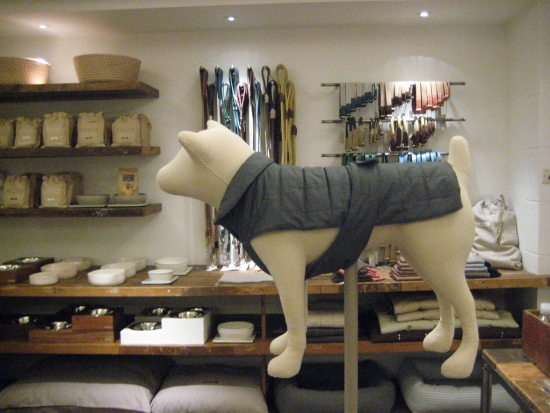Harrods is one of the best known names in the retail industry, with an illustrious history of selling luxurious goods to the rich and famous. However, one of the most adventurous aspects to the London store is soon to come to an end, as by February the famous pet store will be no more.

The fourth floor Pet Kingdom will close at the end of the month and will be replaced by an additional women’s fashion floor, a decision taken by its Qatari owners as part of a multi-million pound refit designed to boost profits at the Knightsbridge store.
Fortunately a small part of the pet store’s legacy will remain in the area though, as the 3,000 square foot spa which offers everything from Dalmatian blow dries to cat manicures will be relocated to a new store on Fulham Road.
So far, new owner the Qatari royal family’s sovereign fund Qatar Holding has spent more than £200 million on refurbishments of the store alone, not taking into account the initial purchase price. This amounted to £1.5 billion, when Mohamed Al-Fayed took the decision to sell Harrods in May 2010.
A spokeswoman for Harrods said; “The Pet Kingdom department will close to make way for further exciting and planned developments in our womenswear offering.
“Employees have been informed and Harrods is working with them to find alternative positions in the store where possible.”
She added that Harrods wished to continue assisting any customer looking for a pet, although the store would no longer display pedigree cats and dogs. Anyone in this position should contact the store’s By Appointment service for further assistance.
The loss of Harrods Pet Kingdom was greeted with dismay by many of London’s animal lovers, many of whom choose to treat their pampered pets with diamond encrusted collars and food bowls from the department.
Many remember the peak period for the department, when Harrods boasted a collection of pets for sale which rivalled nearby London Zoo.
For example, amongst the most famous examples of transactions are the sale of a baby alligator to Noel Coward and a baby elephant to US president Ronald Reagan, with panthers, camels and tigers also available.
Yet the most famous story from the heyday of Pet Kingdom has to be the sale of Christian the lion cub to two Australian backpackers in 1969 for around £3000 who, after he outgrew their Kings Road flat, enlisted the services of conservationist George Adamson to rehabilitate him into the African wild.
One of the backpackers, John Rendall, says; “It was a completely different time and the world has moved on.
“After the Endangered Species Act they couldn’t have a zoo, and the pet shop was no longer a big draw so I understand they have to think of something more profitable but it’s certainly the passing of an era.
“The last time I went in about a month ago it was just selling posh animal accessories.”
Previous Post
Sports Direct swaps Debenhams Shares for Options